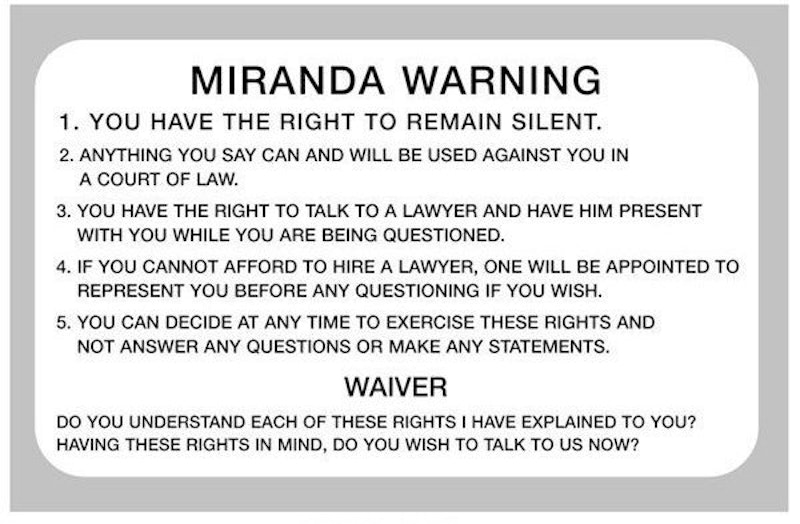Study Notes
Miranda v Arizona 1966
- Level:
- A-Level
- Board:
- AQA, Edexcel, OCR, IB
Last updated 22 Mar 2021
This Supreme Court Case ruled that all defendants subject to interrogation must be informed of their rights to an attorney and the right against self-incrimination. It was the basis for what became known as the Miranda Rights police procedure whereby those being arrested are informed of their rights.

Background to the Case:
Ernesto Miranda was arrested in Arizona on the basis of circumstantial evidence that linked him to the kidnap and rape of an 18-year-old girl. Police officers interrogated Miranda for over two hours until Miranda signed a confession. The confession document itself had a statement that indicated that the confession itself was done voluntarily and of the defendants own free will without coercion and in full knowledge of the legal rights available to him.
Upon going to Court, despite Miranda’s attorney claiming that confession was not voluntary and that Miranda was not aware of his legal rights, the confession was used in evidence to convict Miranda and sentence him to 20-30 years in prison. After the trial, Miranda’s attorney took the case to the Arizona Supreme Court which upheld the original conviction.
Supreme Court Ruling:
Chief Justice Earl Warren wrote the opinion of the Court in which he said the nature of interrogation was so coercive that any confessions that were given would be in direct violation of the Fifth Amendment which protects the defendant from self-incrimination. In addition to this the method also violated the Sixth Amendment stating the right to an attorney.
With this ruling, the Supreme Court overturned the conviction of Miranda and provided detailed information as to what must happen if a defendant wants an attorney to be present.
Miranda was retried without the confession, and was still found guilty. After he was paroled he made a living signing police officers’ Miranda Card which has the warning written on it.
You might also like
US Supreme Court Cases to Watch
28th September 2015
Engel v Vitale 1962
Study Notes

The US Judicial system explained
5th February 2016

Antonin Scalia’s death – a chance for Obama to leave a legacy?
21st February 2016
Landmark Supreme Court Cases
Teaching PowerPoints
The Impact of the US Constitution Today
Study Notes
Abortion rights USA
3rd May 2022
Economist podcast on abortion in the USA
13th May 2022